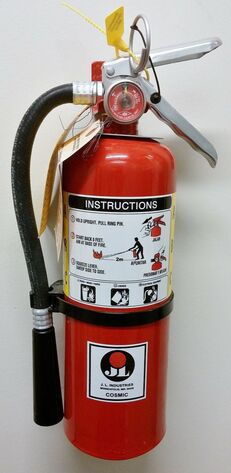Mortgage scams are becoming increasingly common, and it's important to be aware of the warning signs to protect yourself from becoming a victim. These scams can take many forms, but they all have one thing in common: they aim to take advantage of vulnerable individuals who are seeking to purchase, lower their payments, or refinance a home. Two recent scams have been brought to CAPECO’s attention, both of which are related to homeownership and occurred within a four-month span. These scams are particularly concerning as they target vulnerable populations. The scams involves a caller ID listing a mortgage company reaching out to homeowners and offering them a loan modification by lowering their monthly payments. With the loan modification, a barcode or QR code is provided and the homeowner is told to use that code at a service payor, like Walmart, and make the mortgage payment. The scammer checks every month with the household and provides a new code. Households are being told to take that code directly to Walmart, again to make the mortgage payment. Unfortunately, the households may not learn they are being scammed until their mortgage company reaches out to them via letter after the households are three to four months late on their original mortgage payment. Here are some common mortgage scams that every homeowner should be aware of:
To protect yourself from mortgage scams, it's important to do your research and be cautious when dealing with lenders or other individuals who offer to help you with your mortgage. Always verify that the lender or company you're working with is legitimate, and never provide personal or financial information unless you're sure it's safe to do so. If you think you may have been the victim of a mortgage scam, contact your local law enforcement and the Federal Trade Commission immediately. Check out these websites that provide warning signs, tips, common loan modification scams, as well as information on how submit a complaint or report fraud: CAPECO offers a variety of services and programs to help individuals and families with housing issues. Click below to find out more.
0 Comments
If you have a housing-related legal issue, you don’t need to face it alone. The Oregon State Bar (OSB) has a new resource to help you find affordable legal assistance.
Thanks to a partnership with Oregon Housing and Community Services, OSB has expanded its Modest Means Program, which connects Oregonians who may not be able to afford legal help with reduced-cost legal services based on income. Now, more affordable lawyers than ever are available to help with housing and rental cases. To learn more about Modest Means – or for any other help finding an attorney – go to https://www.osbar.org/public/ris or contact OSB’s Lawyer Referral Service at 503-684-3763 or toll-free in Oregon at 800-452-7636.  Photo by Demton on CleanPNG Photo by Demton on CleanPNG Keeping cool in a non-air conditioned apartment during the summer can be challenging, especially on those sweltering hot days. However, there are several ways to stay comfortable and cool without the luxury of an AC unit. Below are five tips to help you stay cool during summer days and nights.
Use the comments below to share with us how you are keeping cool without AC this summer. Homelessness is an unfortunate reality that many people in our society face, and it can be incredibly difficult for someone who is homeless to find work and secure stable housing. The question then becomes: how can a homeless person work and still remain homeless?
The answer is complicated, but there are some solutions available that may help those facing homelessness gain employment while also finding temporary shelter or other resources they need. One of the best options for those seeking employment while living on the streets is volunteering with local organizations or shelters; this allows them access to resources such as food, clothing, transportation assistance (if needed), job training programs, resume building workshops etc., which will all make it easier for them when searching for jobs. Additionally these volunteer opportunities often lead directly into paid positions if done well enough! An option available in Oregon is the Employment-Related Day Care program which provides free childcare services so parents who are looking after children can attend job interviews or go out working without worrying about leaving their kids alone at home during daytime hours. This resource has been proven extremely helpful by providing support when most needed ! Another great way of getting back on track financially would be through taking advantage of various government programs like SNAP (Supplemental Nutrition Assistance Program), WIC (Women Infants Children ) program , Medicaid etc.. These provide essential aid that helps families get back onto their feet again by providing basic needs such as food and healthcare . Remember, no matter what situation one finds themselves in – whether its being unemployed & homeless OR employed but struggling financially – there's always hope & support out there ready to lend a helping hand! So don't hesitate reach out today!! Creating a small garden in an apartment can be a great way to add some life and beauty to your living space. It doesn't have to take up much room or require lots of upkeep - there are plenty of ways you can create a tiny but beautiful garden in even the smallest apartments. Here are five tips for creating your own mini-garden:
 Photo by Karolina Grabowska on Pexels.com Photo by Karolina Grabowska on Pexels.com Making your money work for you is an essential step in saving for a down payment on a house. One of the first things you can do is to set up an automatic savings plan. This allows you to save money regularly without having to think about it. You can set up automatic transfers from your checking account to your savings account or use an app that rounds up purchases and saves the difference. Another option is to invest your money in stocks, mutual funds, or exchange-traded funds (ETFs). Investing can provide higher returns than a savings account, especially in the long term. However, it comes with more risk. It's important to do your research and choose investments that align with your financial goals and risk tolerance. Consider taking advantage of any employer-sponsored retirement plans, like a 401(k) or IRA. Contributing to these plans can help you save money on taxes and build your retirement savings at the same time. Some employers also offer matching contributions, which can help your money grow even faster.  Photo by Karolina Grabowska on Pexels.com Photo by Karolina Grabowska on Pexels.com If you have high-interest debt, such as credit card debt, it may be a good idea to prioritize paying it off before saving for a down payment. High-interest debt can quickly accumulate and make it more difficult to save money over the long term. Consider using the snowball method to pay off debt, which involves paying off the smallest balances first and then using that money to pay off larger balances. Consider seeking guidance from a financial advisor or a trusted friend or family member who has experience with saving for a down payment. They can offer advice on budgeting, investing, and other strategies for maximizing your savings and making your money work for you. Making your money work for you can be a challenging task, but it's critical when saving for a down payment on a house. Strategies like automatic savings plans, investing, employer-sponsored retirement plans, paying off high-interest debt, and seeking guidance from financial experts can all help you achieve your financial goals.
 Photo by Alex Green on Pexels.com Photo by Alex Green on Pexels.com Renters often overlook the importance of insurance, assuming their landlord's insurance policy will cover any damages or losses. However, it's crucial for renters to have their own insurance to protect themselves and their belongings in case of unforeseen events like theft, fire, or natural disasters. A renters insurance policy can provide coverage for personal property, liabilities, and additional living expenses, which can provide peace of mind and financial security in case of an unexpected incident. Having renters insurance can also cover liabilities resulting from accidents that occur in the rental property. If a guest gets injured during a visit or somebody's property gets damaged, a renters insurance policy can help you avoid costly lawsuits and legal expenses. This type of coverage can provide financial protection against liability claims and can help protect a renter's personal assets.  Photo by Armin Rimoldi on Pexels.com Photo by Armin Rimoldi on Pexels.com Another important aspect of renters insurance is the personal property coverage it offers. Renters often underestimate the value of their personal belongings and underestimate the cost of replacing them. A renters insurance policy can not only cover the cost of replacing lost or damaged items but also provide temporary housing and additional living expenses until the renter can find a new home. In short, renters insurance is an affordable way to safeguard against loss and protect a renter's financial future.
 Photo by Dimi Katsavaris on Unsplash.com Photo by Dimi Katsavaris on Unsplash.com Homelessness is a growing concern around the world, and its effects can be devastating. Being without a permanent place to call home can lead to physical and mental health issues, lack of stability, and limited access to basic necessities like food and water. It's crucial for individuals and families to have a stable and secure place to live, which is why agencies like ours exist - to help those in need. Emergency shelter is an important step towards getting individuals off the streets and into a safe and stable environment. It's a temporary solution that provides a roof over someone's head, along with basic necessities like food, clean water, and hygiene facilities. However, it's not a long-term solution. Having a permanent place to call home is essential for individuals to rebuild their lives, find employment opportunities, and create a stable future for themselves and their families. Here at CAPECO, we understand the importance of housing and work towards finding permanent solutions for our clients. Our initial goal is to help individuals transition from homelessness or emergency shelter to more permanent housing options, whether it's through rental assistance, financial counseling, or support in finding a job. We want to provide resources that will help our clients succeed and thrive, both now and in the future. If you or someone you know is experiencing homelessness, please reach out to us for help. We are committed to providing the resources and support necessary to ensure that everyone has access to safe and stable housing. Together, we can work towards ending homelessness and creating a brighter future for everyone. Additional Resources
 Photo by Joslyn Pickens on Pexels.com Photo by Joslyn Pickens on Pexels.com Saving money for a down payment on a home can be a daunting task, especially for first-time homebuyers. It requires a significant amount of planning, discipline, and patience. However, with a few smart strategies, it is possible to save enough money to make your dream of homeownership a reality. One key strategy is to create a budget and stick to it. You should carefully track your income and expenses, identifying areas where you can reduce your spending and put more money toward your down payment. This might mean cutting back on discretionary expenses like dining out or entertainment, or finding ways to reduce your fixed expenses like rent or utilities. Another strategy is to automate your savings. Arrange for a portion of your paycheck to be automatically deposited into a separate savings account earmarked for your down payment. This way, you can save consistently without even thinking about it. Consider using a high-yield savings account that offers a higher interest rate than a traditional savings account. This will help your savings grow faster and provide some extra motivation to continue saving.  Photo by Kindel Media on Pexels.com Photo by Kindel Media on Pexels.com You might also consider ways to increase your income. This could mean working overtime, taking on a second job, or starting a side hustle. Any extra income can be put directly into your down payment savings account. Consider seeking out down payment assistance programs that might be available to you as a first-time homebuyer. Many states and municipalities offer government-funded assistance programs, grants, or low-interest loans to help with down payments. By taking advantage of these programs, you can potentially reduce the amount of money you need to save on your own. Saving for a down payment on a home takes time and effort, but with a solid plan and consistent savings habits, you can achieve your goal of homeownership. By creating a budget, automating your savings, using a high-yield savings account, increasing your income, and seeking out down payment assistance programs, you are well on your way to saving enough money for your first home.
 Preparing for a fire emergency in your apartment building can be crucial when it comes to protecting yourself and your loved ones. Here are some steps you can take to be prepared:
|
Housed
Whether you are a home owner or renting a place we strive to make this a place you can visit to find ways to stay safe, healthy, and happy while Housed. Categories
All
|



 RSS Feed
RSS Feed
